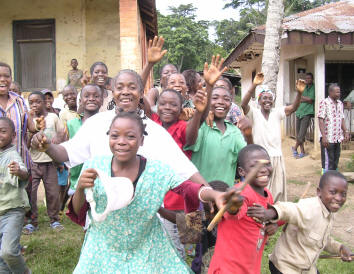|
Introduction African farming systems are highly heterogeneous: between agroecological and socioeconomic environments, in the wide variability in farmers’ resource endowments and in farm management. This means that single solutions (or ‘silver bullets’) for improving farm productivity do not exist. Yet to date few approaches to understand constraints and explore options for change have tackled the bewildering complexity of African farming systems. |
|
| The NUANCES (Nutrient Use in Animal and Cropping systems – Efficiencies and Scales) framework offers a structured approach to unravel and understand the complexity of African farming to identify what we term ‘best-fit’ technologies – technologies targeted to specific types of farmers and to specific niches within their farms. The NUANCES framework is not ‘just another computer model’! We combine the tools of systems analysis and experimentation, detailed field observations and surveys, incorporate expert knowledge (local knowledge and results of research), generate databases, and apply simulation models to analyse performance of farms, and the impacts of introducing new technologies. We have analysed and described complexity of farming systems, their external drivers and some of the mechanisms that result in (in)efficient use of scarce resources. Studying sites across sub-Saharan Africa has provided insights in the trajectories of change in farming systems in response to population growth, economic conditions and climate variability (cycles of drier and wetter years) and climate change. | 
|
|
In regions where human population is dense and land scarce, farm typologies have proven useful to target technologies between farmers of different production objectives and resource endowment (notably in terms of land, labour and capacity for investment). In such regions we could categorise types of fields on the basis of their responsiveness to soil improving technologies along soil fertility gradients, relying on local indicators to differentiate those that may be managed through ‘maintenance fertilization’ from fields that are highly-responsive to fertilizers and fields that require rehabilitation before yields can improved. Where human population pressure on the land is less intense, farm and field types are harder to discern, without clear patterns. Nutrient cycling through livestock is in principle not efficient for increasing food production due to increased losses, but is attractive for farmers due to the multiple functions of livestock.We identified trade-offs between income generation, soil conservation and community agreements through optimising concurrent objectives at farm and village scales. It shows that future analyses must focus at farm and farming system level and not at the level of individual fields to achieve appropriate targeting of technologies – both between locations and between farms at any given location. This approach for integrated assessment can be used ex ante to explore the potential of best-fit technologies and the ways they can be best combined at farm level. The dynamic and integrated nature of the framework allows the impact of changes in external drivers such as climate change or development policy to be analysed. Fundamental questions for integrated analysis relate to the site-specific knowledge and the simplification of processes required to integrate and move from one level to the next. Different system-analytical methods are employed, combining participatory research, farm typologies, data-mining, experiments and modelling tools to identify intervention opportunities and pathways towards the sustainable intensification of smallholder farm systems. Steps in what we term the ‘DEED’ approach are to: 1. Describe current production systems and their constraints; 2. Explain the consequences of current farmers’ decisions on resource allocation; 3. Explore options for agro-technological improvement for a range of possible future scenarios; 4. Design, together with the farmers, new management systems that contribute to the sustainable intensification of smallholder agriculture. The use of the NUANCES Framework and the maintenance of the underlying tools and models is coordinated by Plant Production Systems Group, Wageningen University, the Netherlands. Contact For comments and/or questions about the AfricaNUANCES project or the NUANCES framework, please contact prof. Ken Giller (Ken.Giller@wur.nl).
|
|









